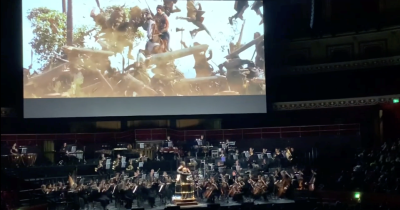ICOM presents Multimodal Engagements [Film Screening]
13:30 - 14:15
Please note the following
13:30 - 14:15 - Film Screening
You must book a ticket for each session, separately
Multimodality is a rich field of research that draws attention to how meaning is made through the combined use of semiotic resources such as gesture, speech, face expression, body movement and proxemics, (still and moving) image, objects, sound and music, writing, colour, layout, and the built environment.
UCL has strong traditions and thriving communities in multimodal theory, research, and practice – and is hosting this year’s International Conference of Multimodality (#ICOM_11) in London. The conference takes up the theme and task of ‘designing futures’ with innovative contributions from around the world.
The future belongs to us all. On the 29th of September at the Bloomsbury Studio you are invited to engage in multimodal works with space to experience, think, and talk about the future.
12:00 -13:15 Public discussion about Decolonisation, disruption, discipline, and discomfort in multimodality - Moderated audience discussion session. Seated event. Running time approx 1.5 hour with no interval.
15:30-17:00 Installation (timed ticket for a 30min session) - an interactive installation that envisions the future of the university that is not only tolerant of, but also encourages multimodal scholarship. Standing event
13:30 - 14:15 Film screening and Q&A of a multimodal film discussing and exploring culture and future. Seated event. Running time 20 mins with no interval followed by Q& A. Film details below
Insincere Inclusion? Ignorant Appropriation?
A Symphony Orchestra Plays South Indian Film Music
Sureshkumar P. Sekar
20’25”
This is a video essay about the uniquely eclectic Indian film music and how not to play it.

Mozart, Michael Jackson, Morricone, Miles Davis, and M. S. Vishwanathan could coexist in one Indian film, in one Indian film song. This eclecticism, hybridity, dynamism, heterogeneity is the defining characteristic and the aesthetic ideology of Indian film music. No one conventional music ensemble in the world, even a 100-piece symphony orchestra, is enough to play with adequate affective potential all the music in one Indian film.
In 2019, when a symphony orchestra played the music of the South Indian film Baahubali (2015) at the Royal Albert Hall, London, there was something amiss. Melodic parts that were played with traditional Indian instruments in the film’s original recorded score were reproduced on stage with non-Indian instruments. This caused the film/music to lose some of its cultural specificity and therefore, its syncretic affectivity.
Featuring some delightful music composed by Nino Rota, Ilaiyaraaja, Philip Glass, Bruckner, John Williams, Ludwig Göransson, A. R. Rahman, M. M. Keeravani, and Pandit Ravi Shankar, this peer-reviewed video essay offers an entertaining and engaging auto-ethnographic account of an Indian listening to an Indian film score being performed without any Indian melodic instruments.
Sureshkumar Sekar’s other peer-reviewed video essays can be viewed here
These events are being filmed, by purchasing a ticket you consent to being filmed.
 Close
Close



 Bloomsbury Theatre Event Bloomsbury Theatre and Studio
Bloomsbury Theatre Event Bloomsbury Theatre and Studio